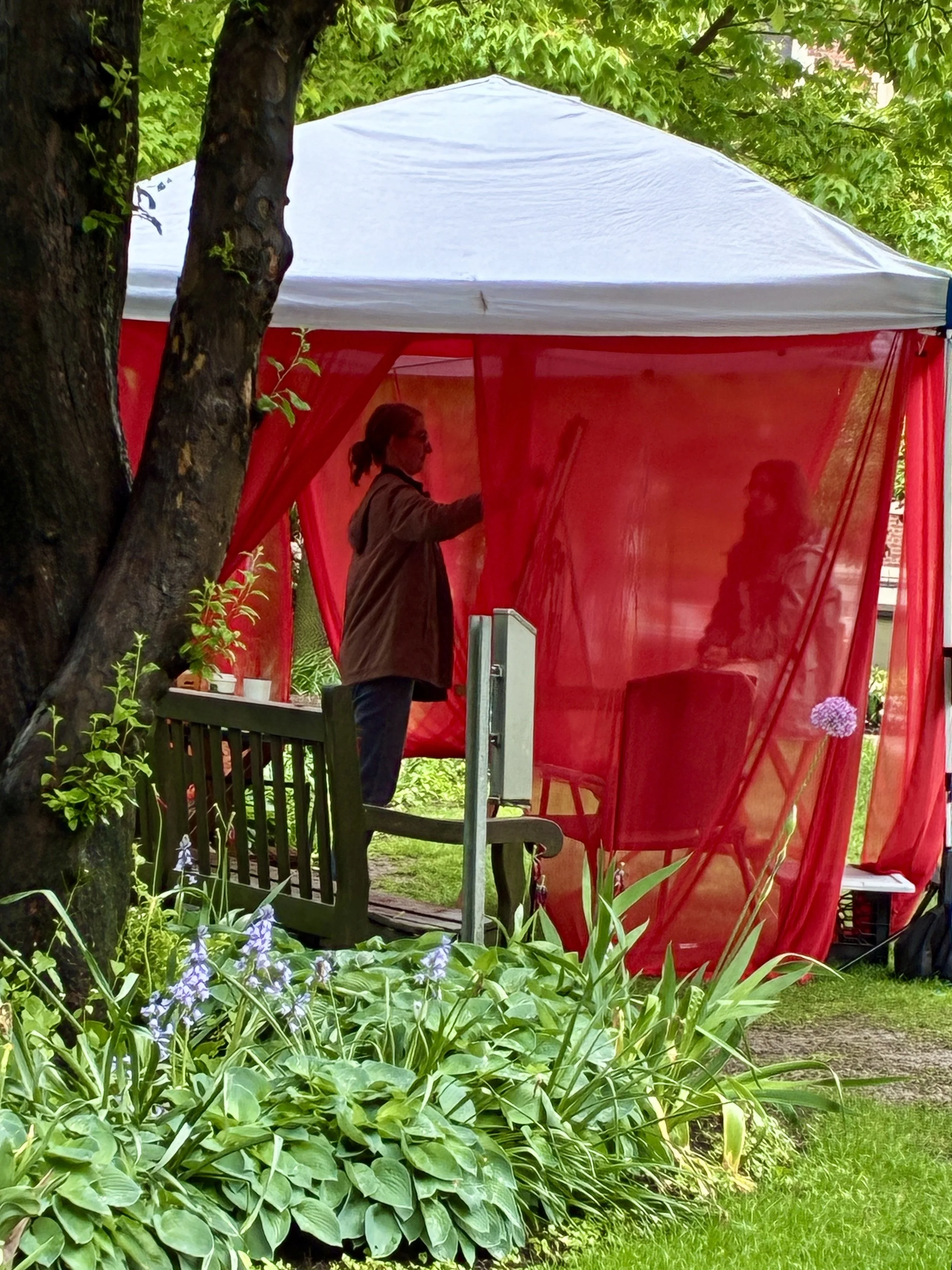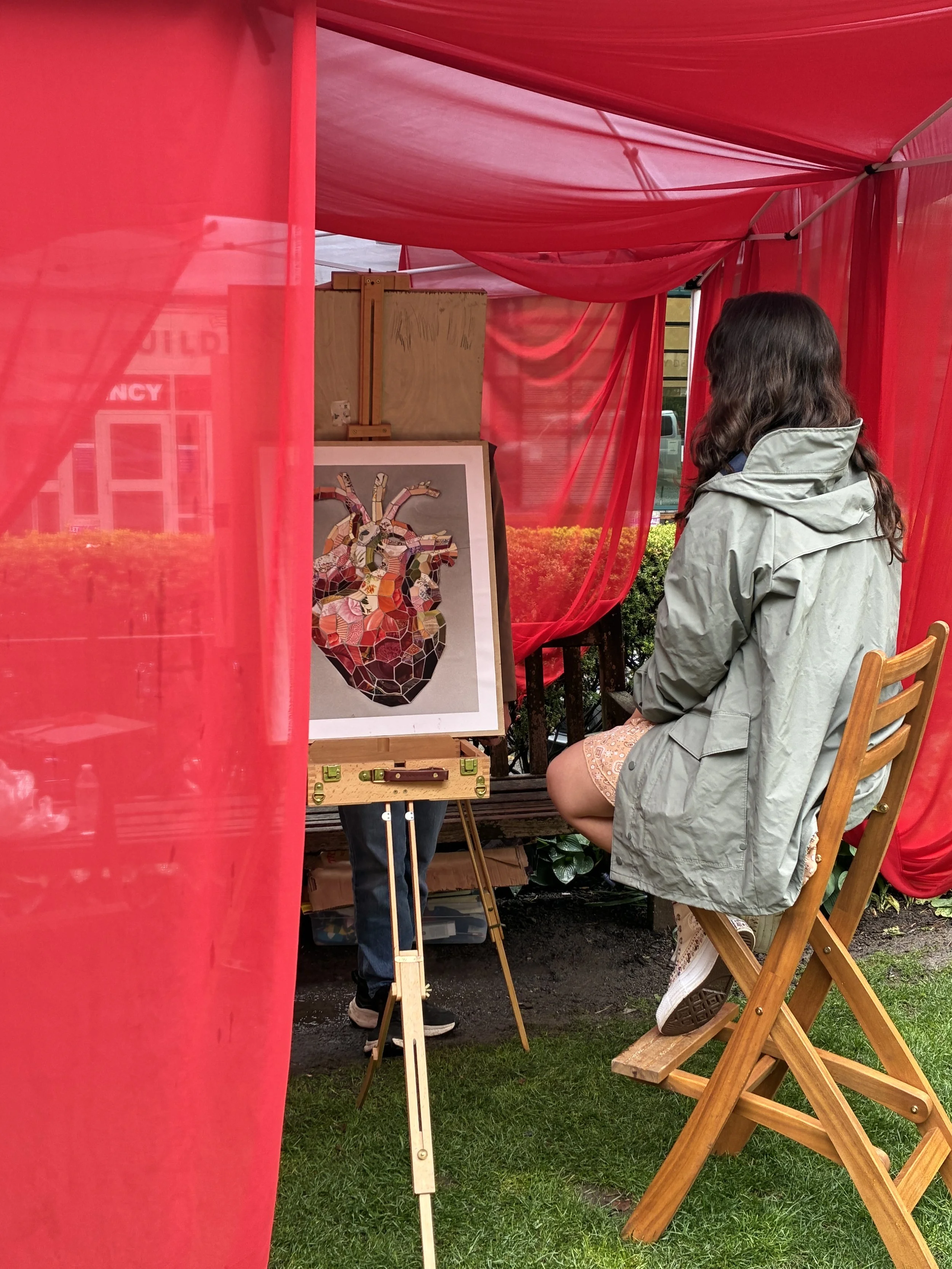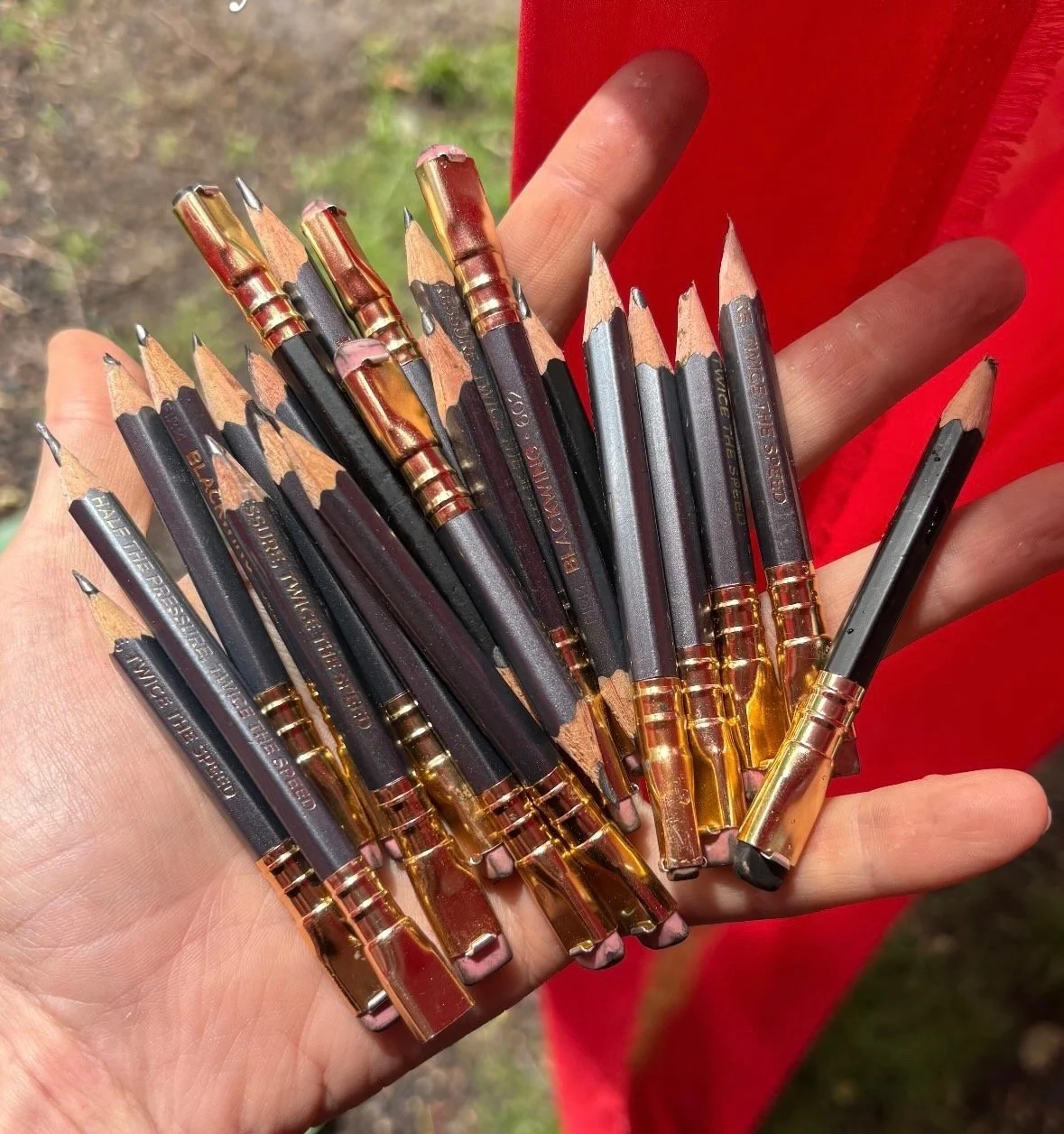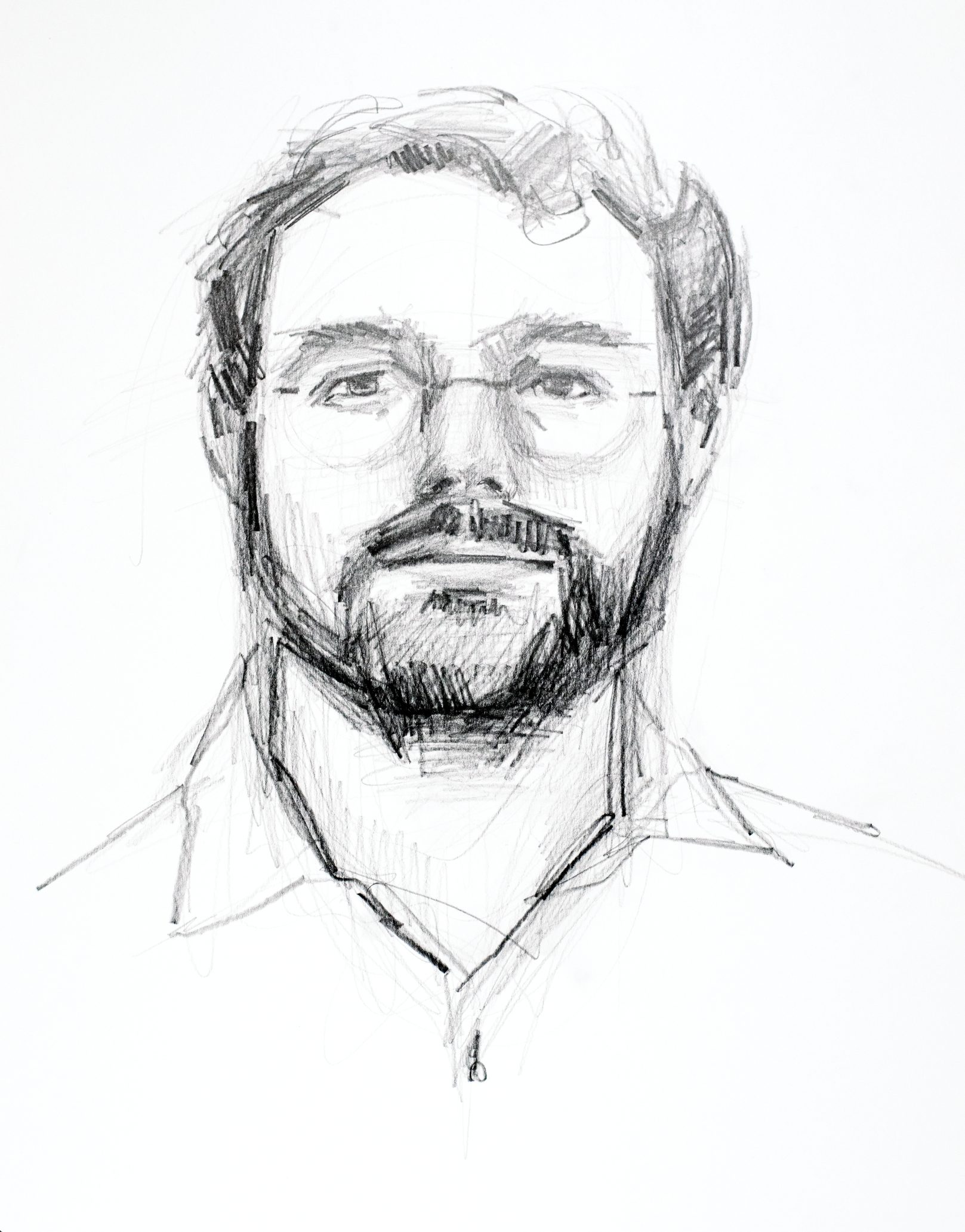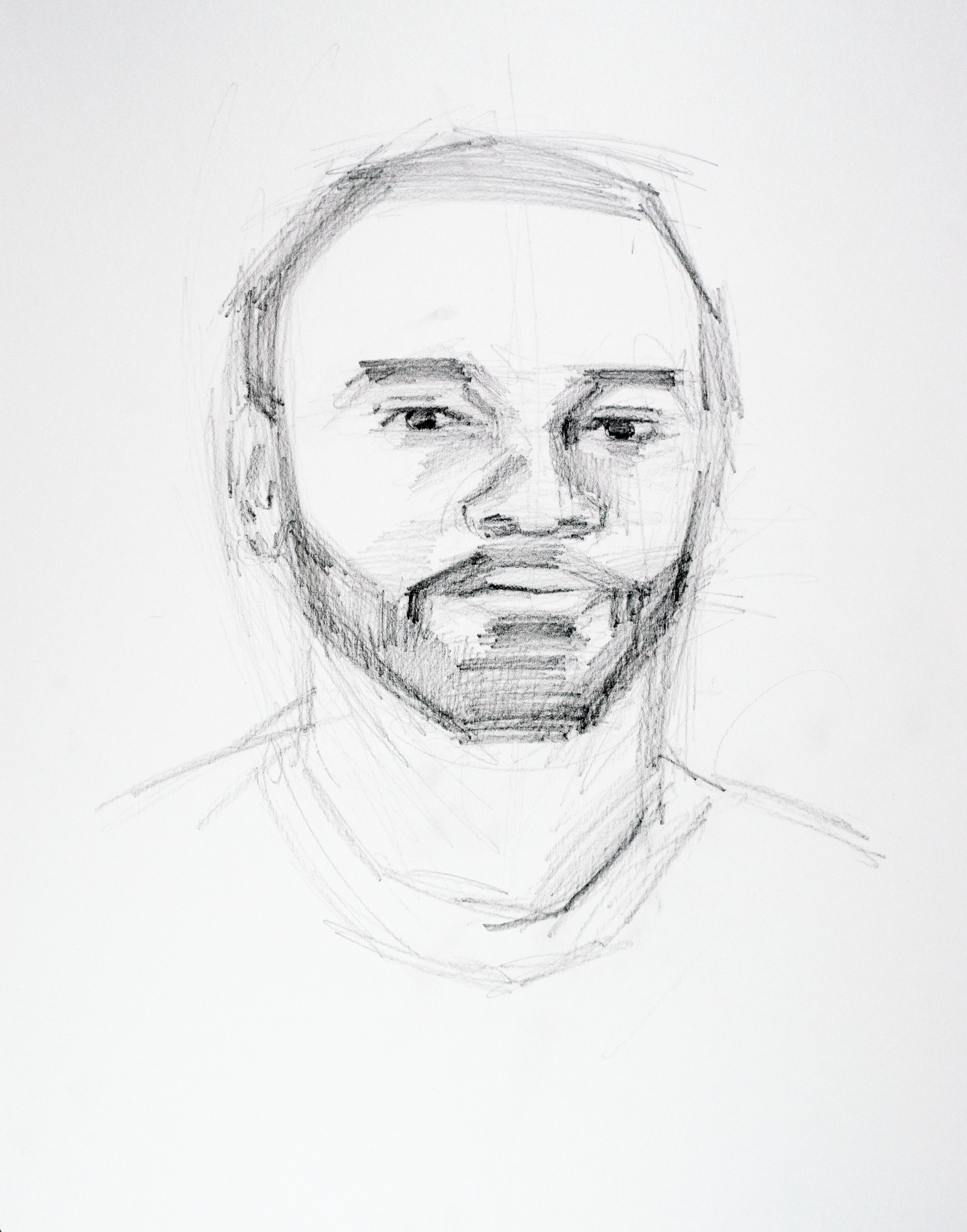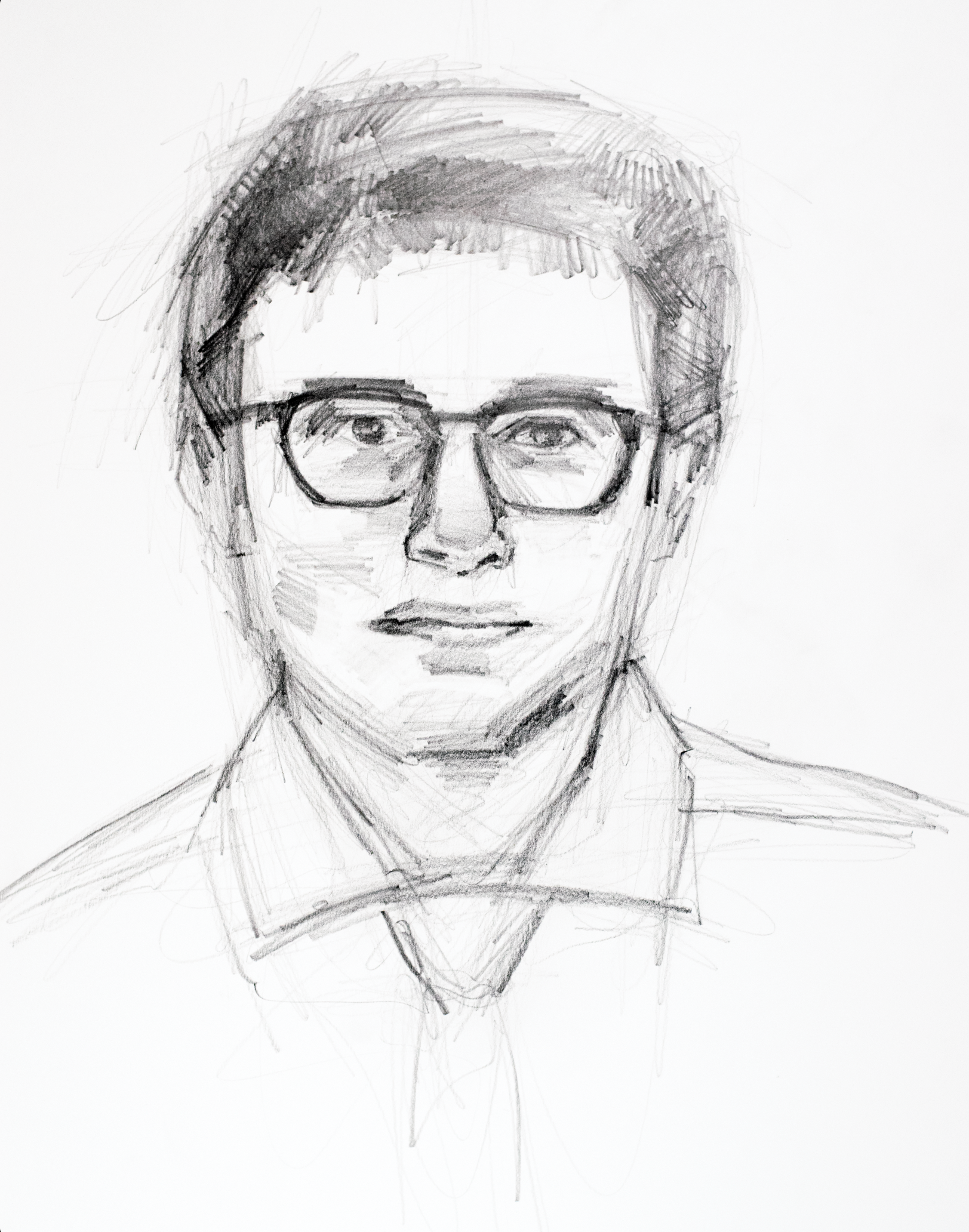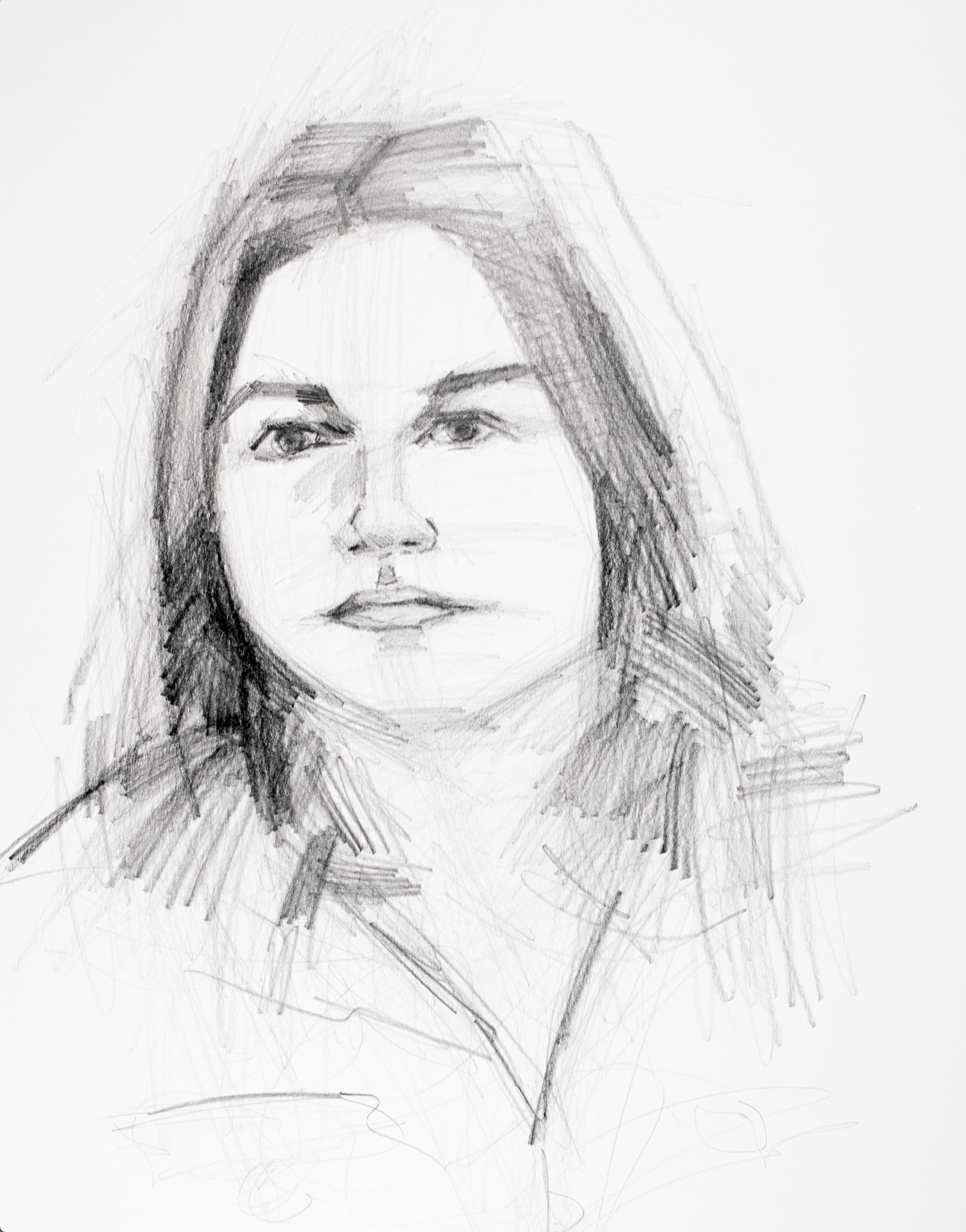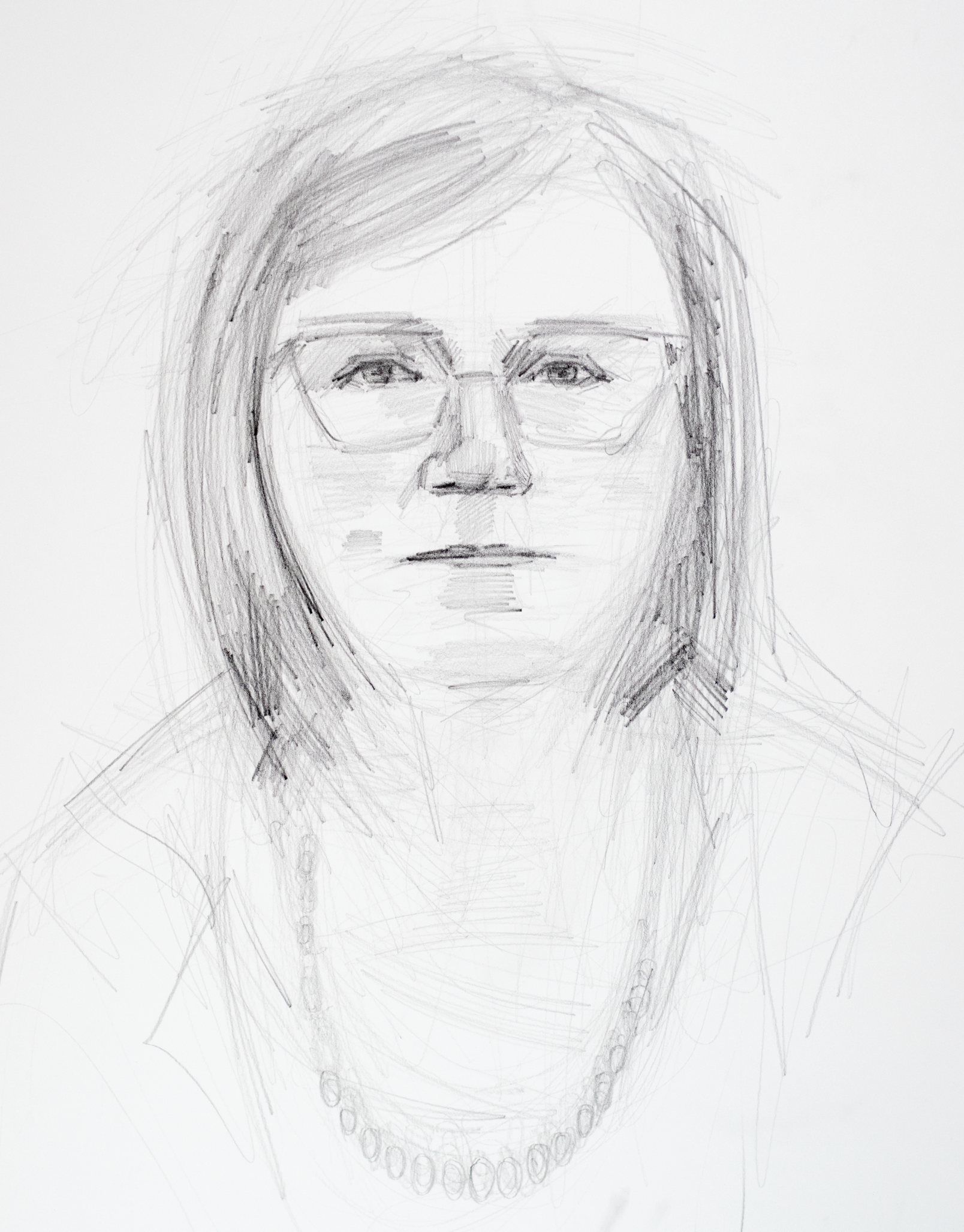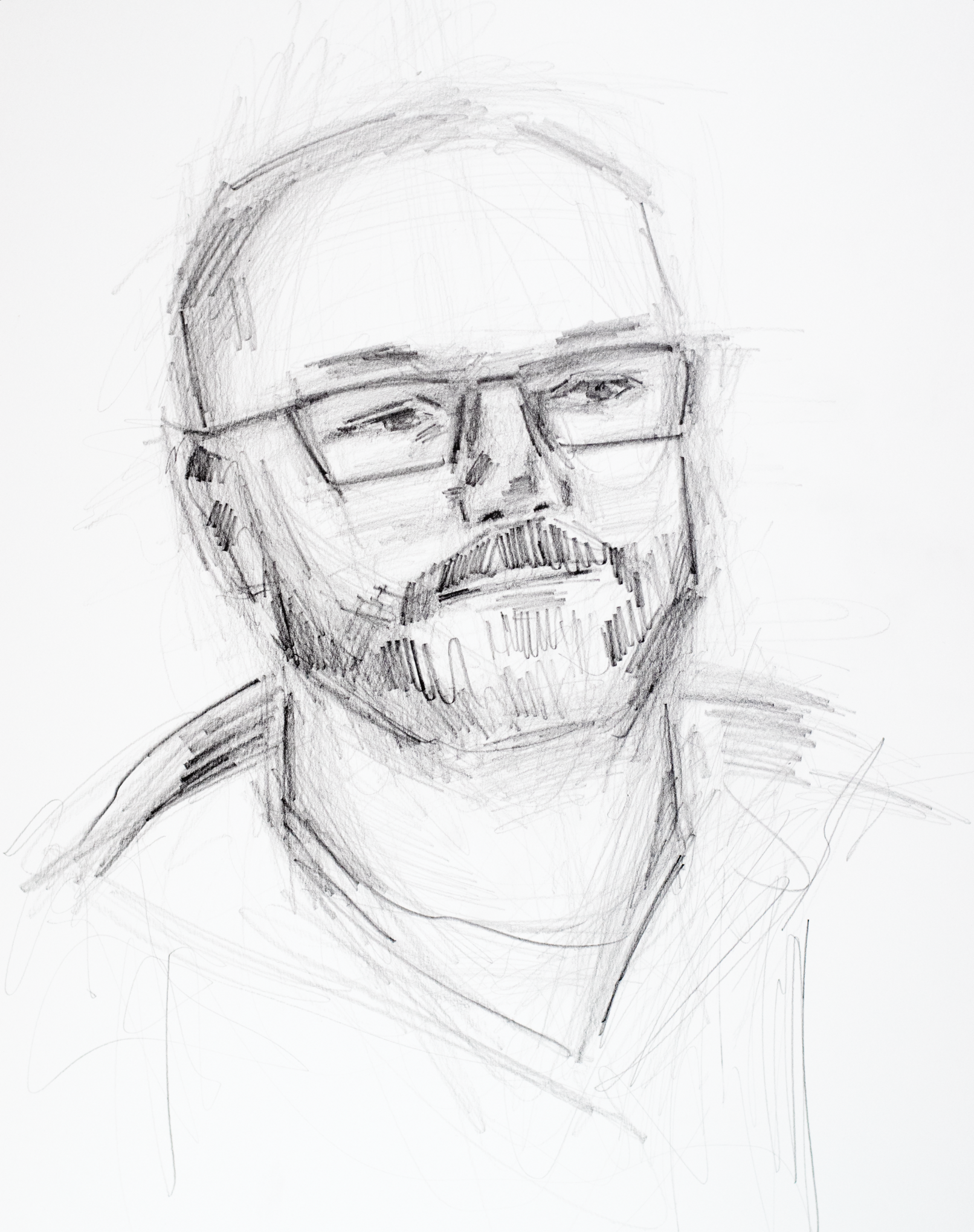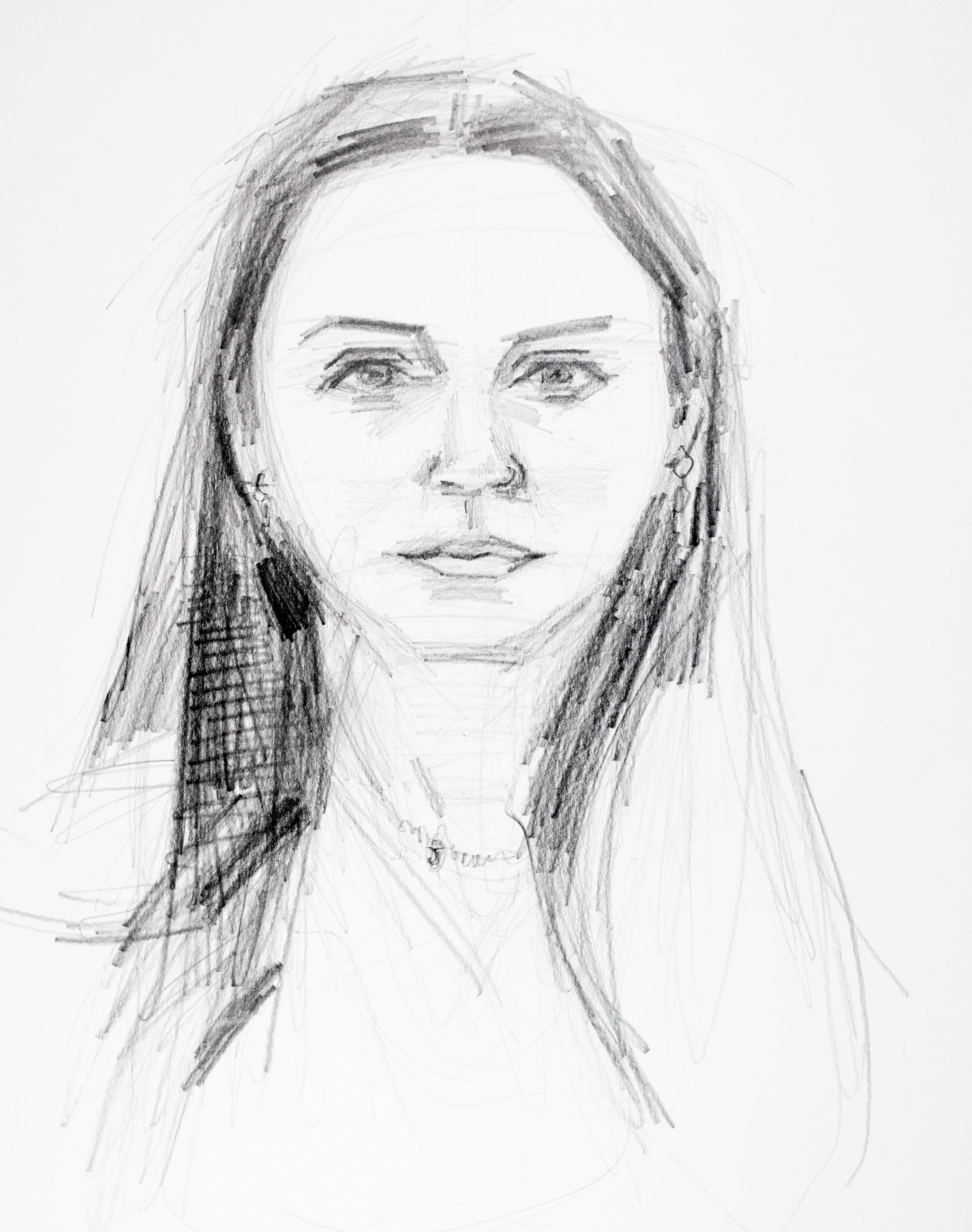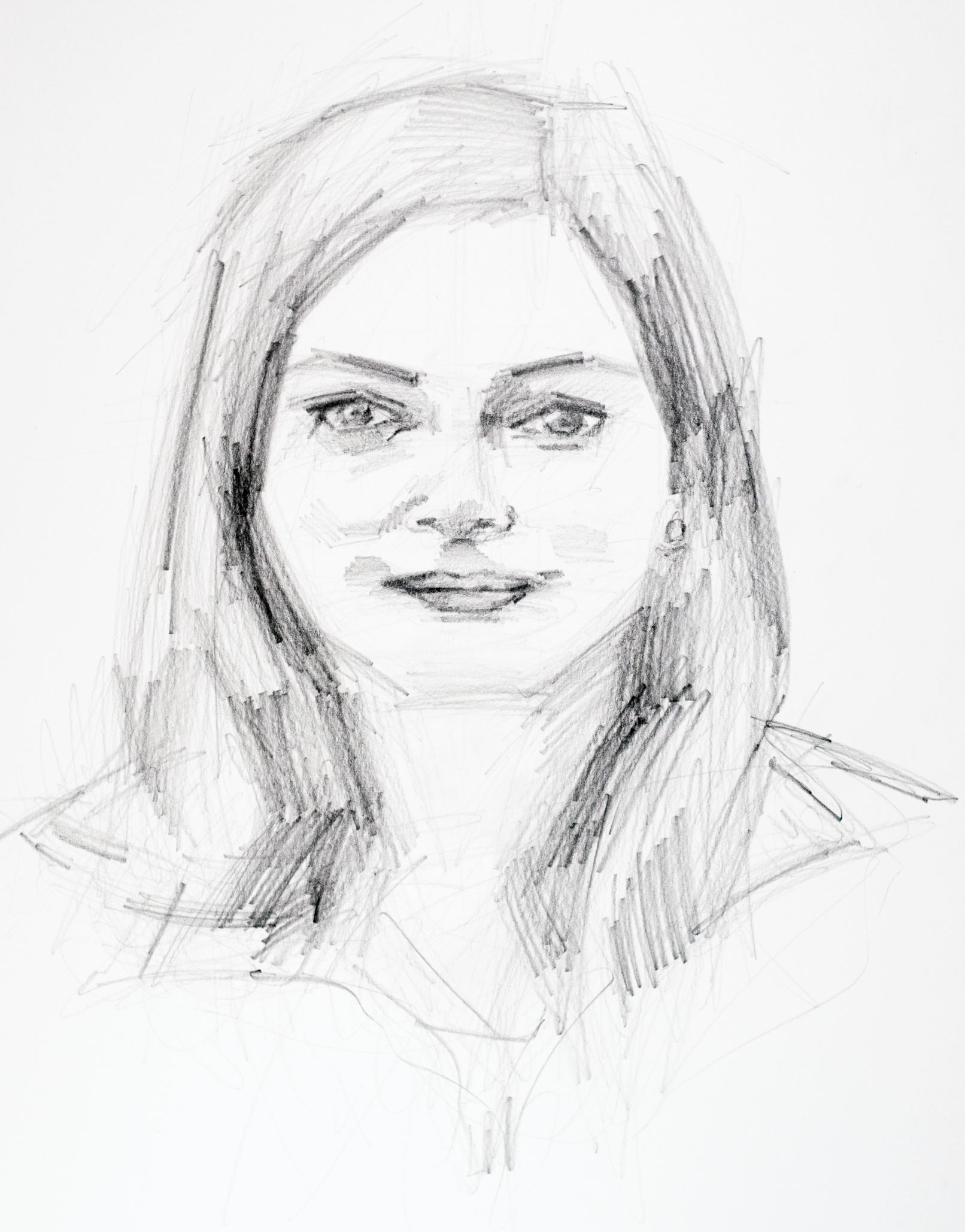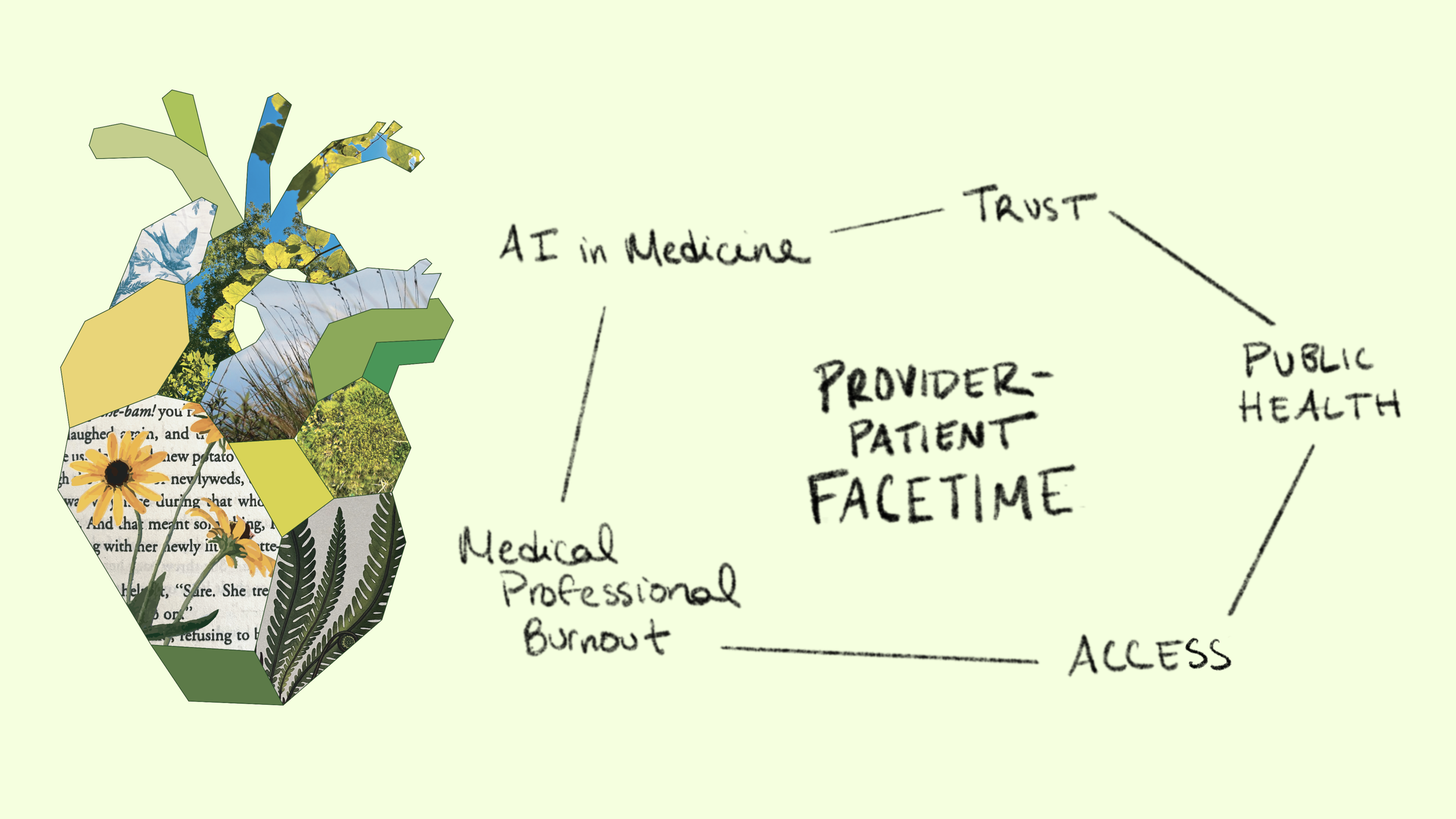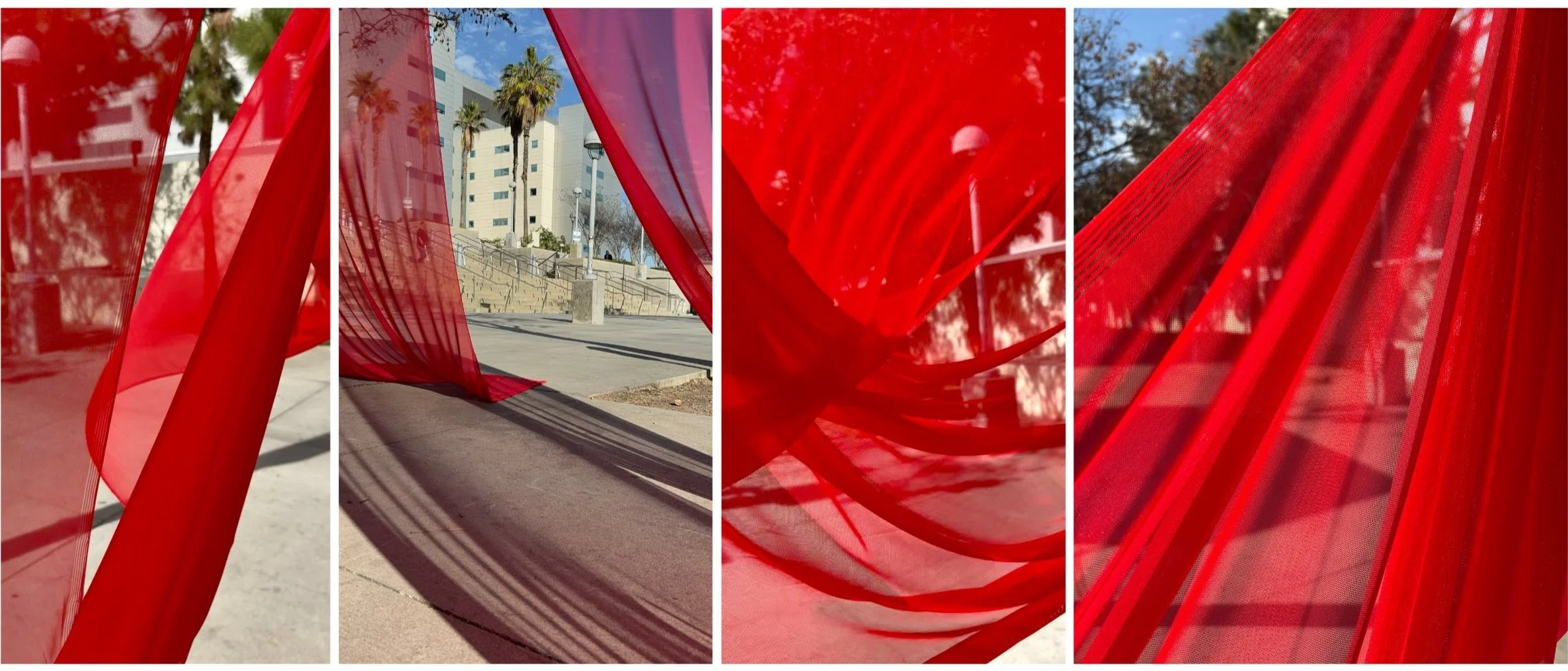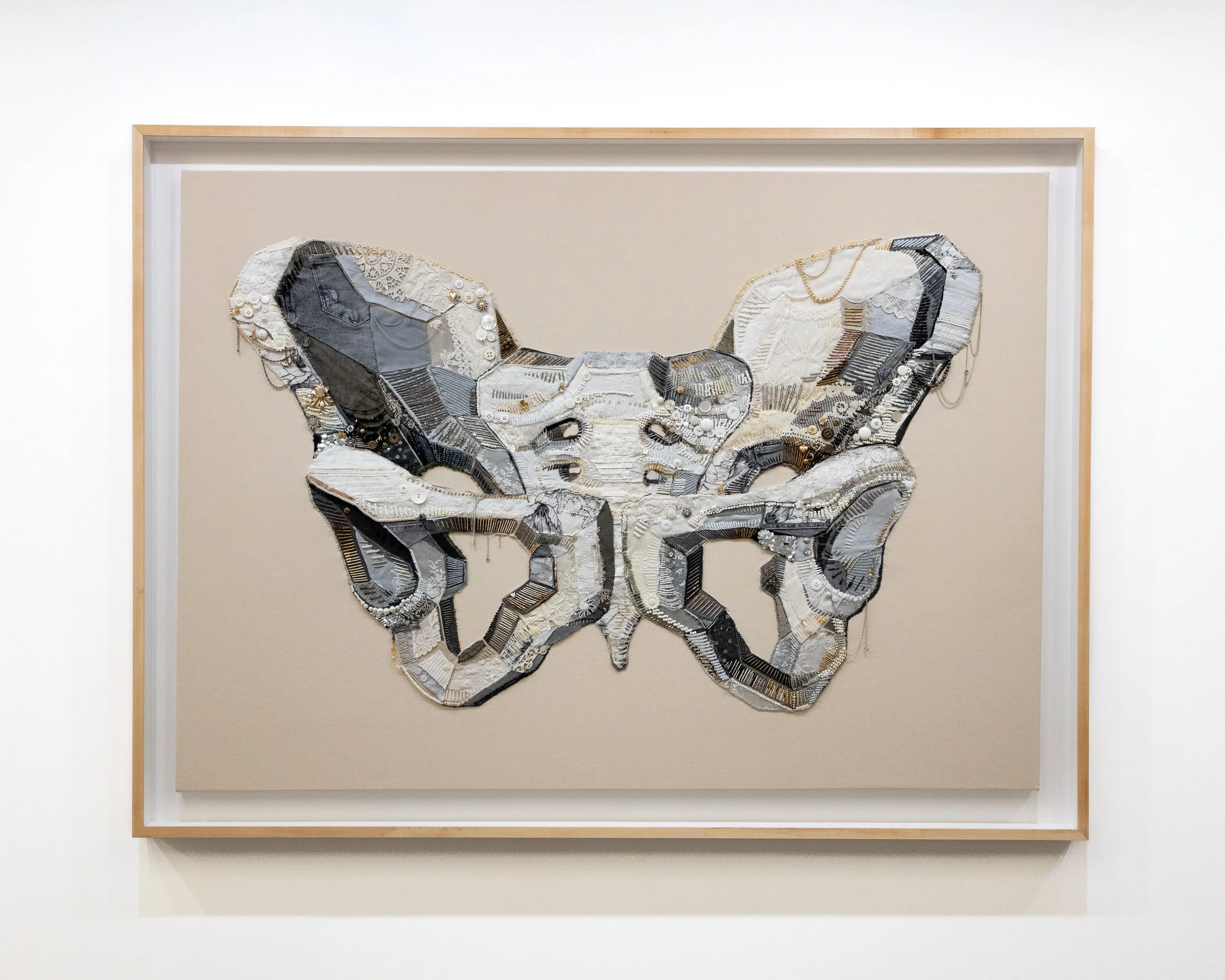The Artist Will See You Now
For the month of May 2025, artist Mary Lacy attempted to mimic the schedule of a physician—only drawing portraits instead of seeing patients. Each ‘appointment’ was fifteen minutes, one after another, all day everyday. Stationed in the medical neighborhood of Longwood in Boston, she completed 416 ‘appointments’ over the course of the month, with the interactive performance itself becoming the most lifelike portrait of them all.
The Artist Will See You Now is a public experiment in exhaustion, connection, and trading places. It draws parallels between the artist/sitter relationship to that of clinician/patient. The work makes an important connection between time and trust in the clinical setting, and it brings medical professionals and the general public together in thoughtful and imaginative ways. The experience also positions the humanities, and its relationship to care, as an integral part of our healthcare workforce.
Nobody sees their portrait the day of their appointment, which creates anticipation for, and a shared experience in, seeing the entire collection all together. Art becomes a third space for people to connect, better understand each other, and organize towards solutions.
Photo credit: Pat Greenhouse/Boston Globe Staff
“I was able to see my community, and the people we serve, understand one another in a way I’d never seen before.””
Narrative Medicine is a healthcare discipline that uses patient narratives and storytelling to improve the doctor-patient relationship and to promote healing. It acknowledges the emotional experience that is intertwined with a physical illness or injury and helps providers understand patients’ lives, not just their medical charts. Narrative Medicine builds better communication and wellbeing across our entire health system.
However, the discipline has brought forth the uncomfortable truth that 15 minutes for a consultation (the approximate national average for new patients) is not conducive to many of its own aspirations. This bottleneck of time is connected to a much bigger conversation about the American Healthcare system and acknowledges the daily reality our healthcare workforce is operating under. The Artist Will See You Now focuses itself here, on the issue of time, and all that it is connected to. It unites Narrative Medicine with public art and builds a platform for providers and patients to connect outside the clinical setting.
In this art performance, there is interplay between who is in need of care, what that care looks like, and who is in a position to offer help. Often overlooked, how can the arts, and the growing field of Narrative Medicine, provide? Can it expand our sense of expertise and who is in a position to contribute? How do the humanities inform our clinical relationships and, thus, patient outcomes? Can us as artists feel the weight of that? Can we fight for better healthcare while rebuilding trust at the same time? Could they ever exist apart?
This project aims to reexamine the doctor-patient relationship, expand the national conversation about the issues of time and trust in our medical care, and build interdisciplinary partnerships in order to solve them. What do respect, power, care, and leadership look like in these two parallel professions? With the implementation of AI in medicine, what is the future of the clinical experience and the doctor-patient relationship? How does AI affect the role of the clinician? The role of the artist? What do they have in common and what skills will be most important? What are we gaining and what are we risking? What happens with trust? What do we want? How do we get more people inside that conversation?
““Sitting as the artist’s subject was surprisingly moving. The artist and I hardly spoke, other than exchanging a few sentences in greeting and closing, but at the end I felt ‘seen’ and cared for. Her gaze was calm and curious. She exuded competence and also kindness. I wondered - I hoped - that patients might leave their visits with the same feeling of having been attended to.””
Photo credit: Pat Greenhouse/Boston Globe Staff
Please sign up for The newsletter and/or leave a note!
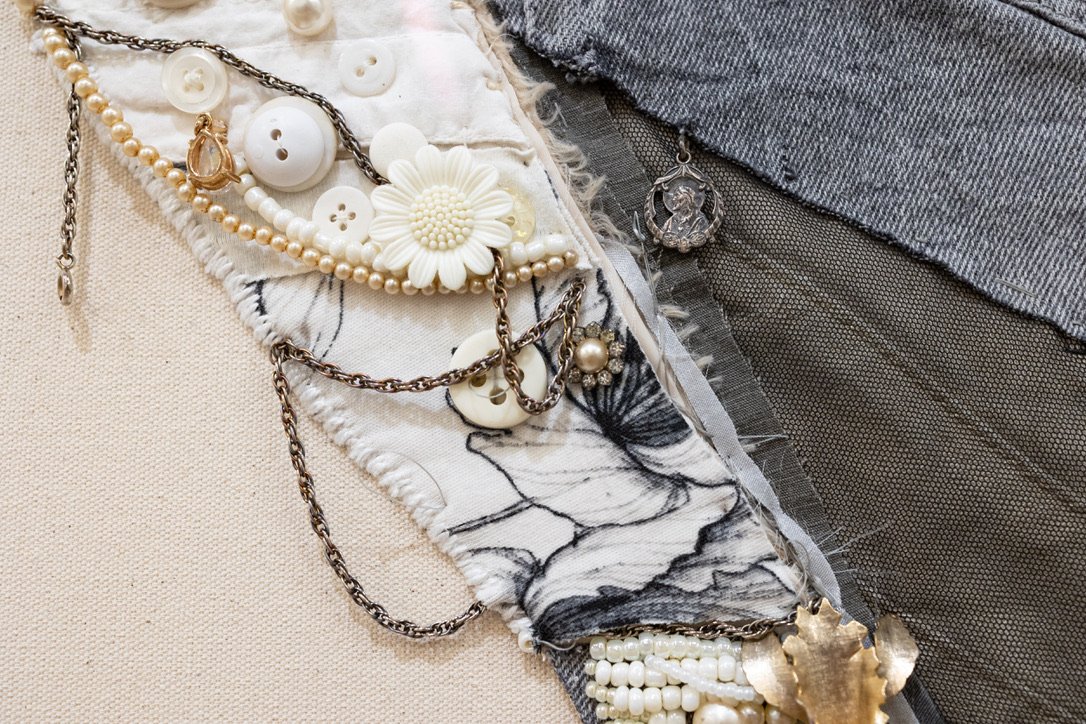
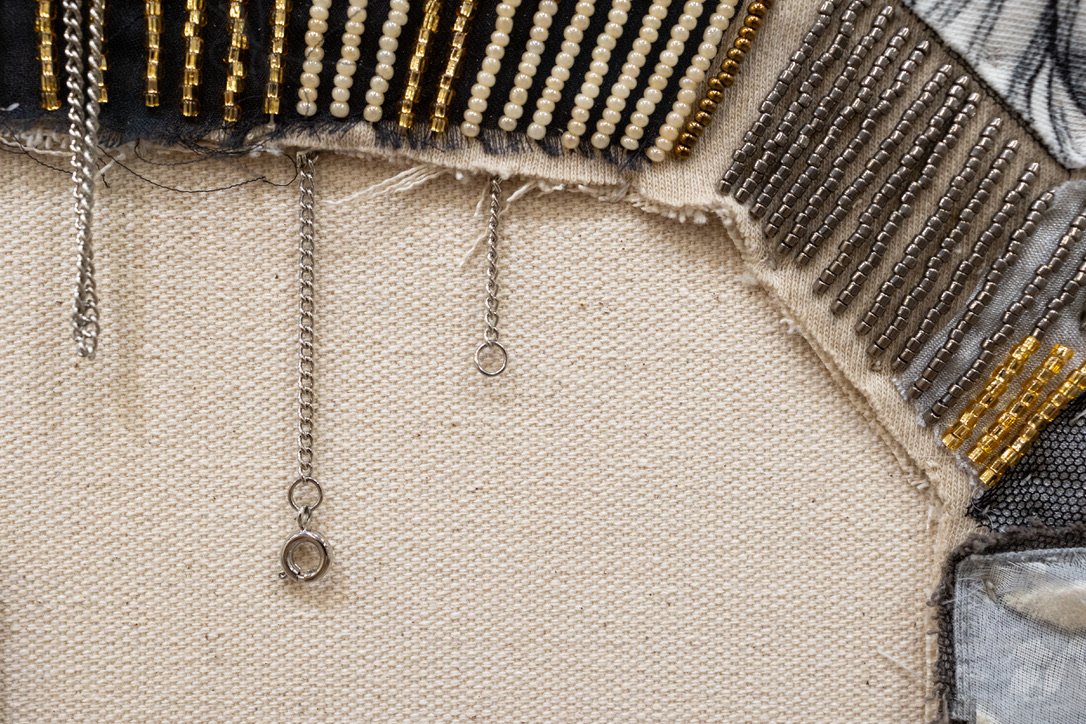
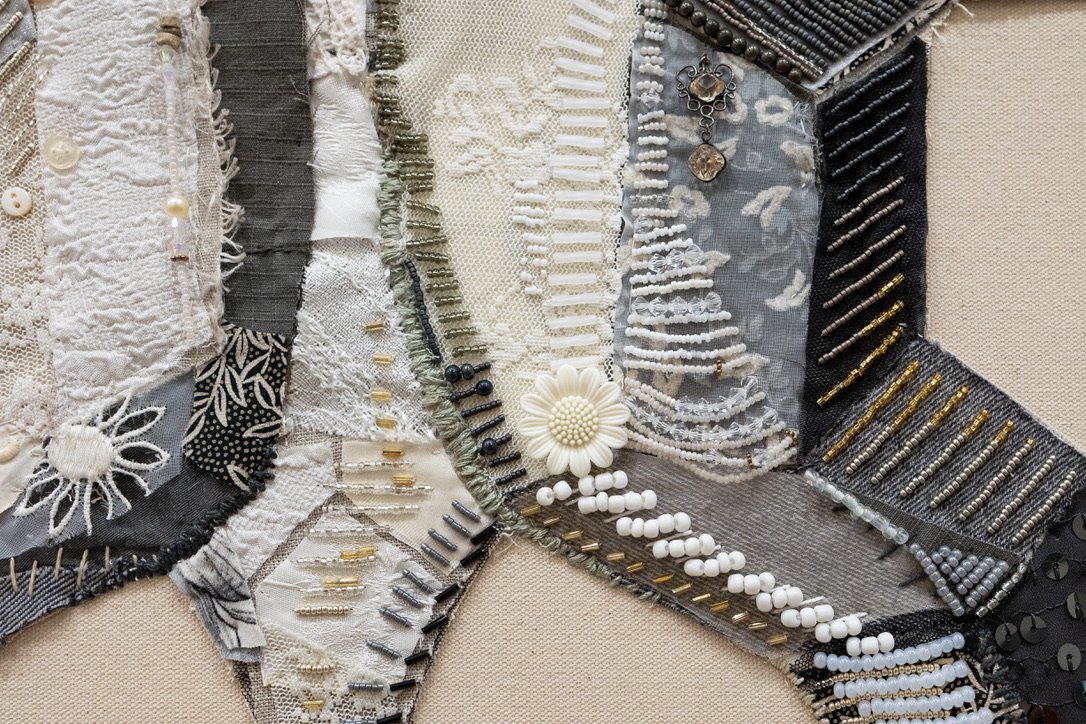
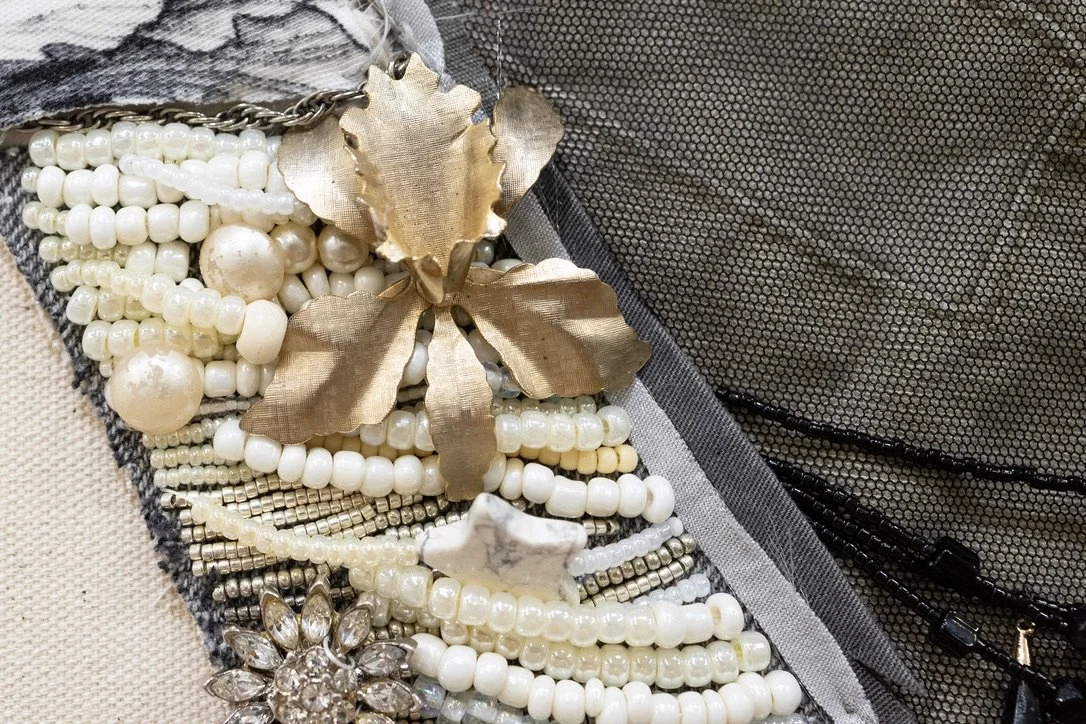
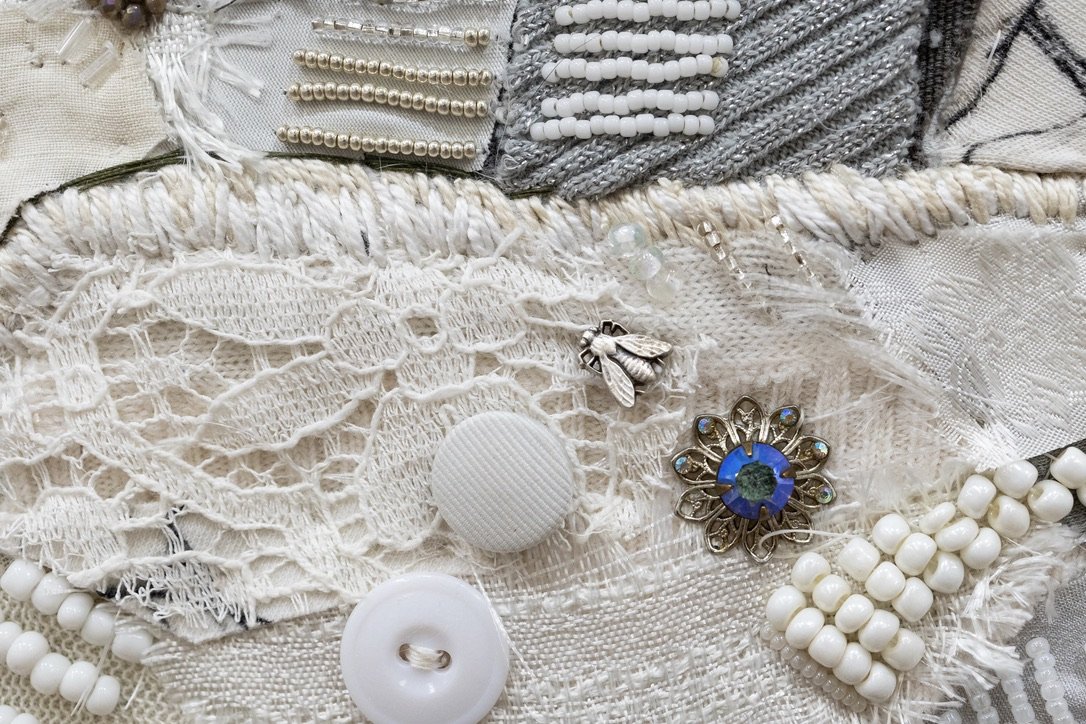
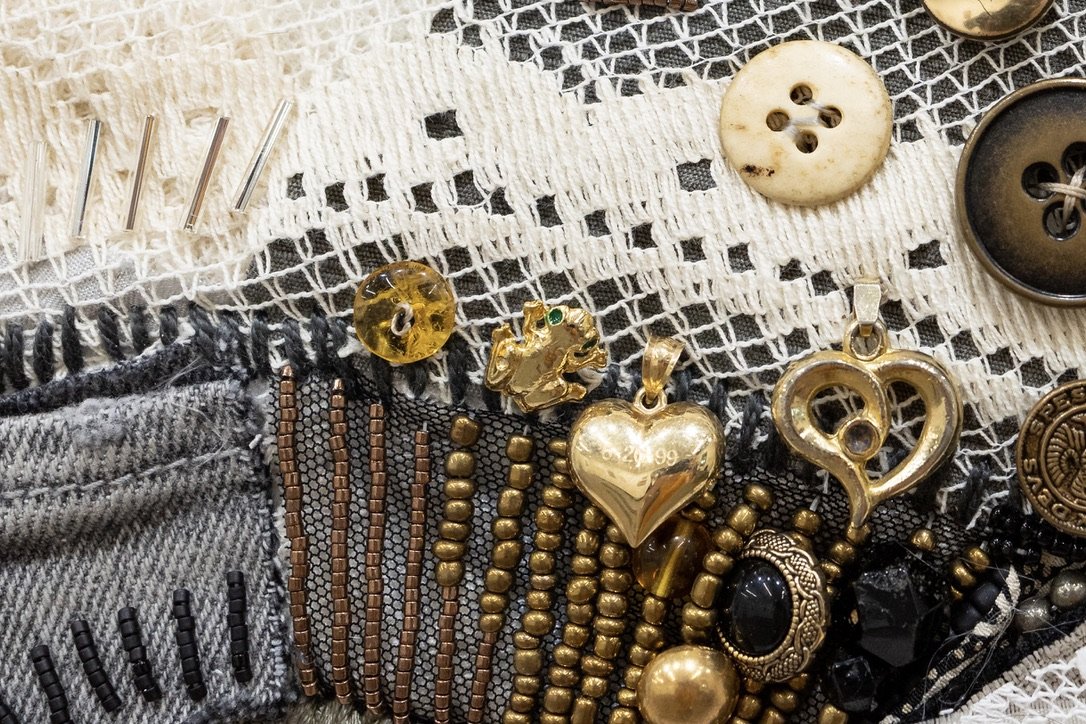
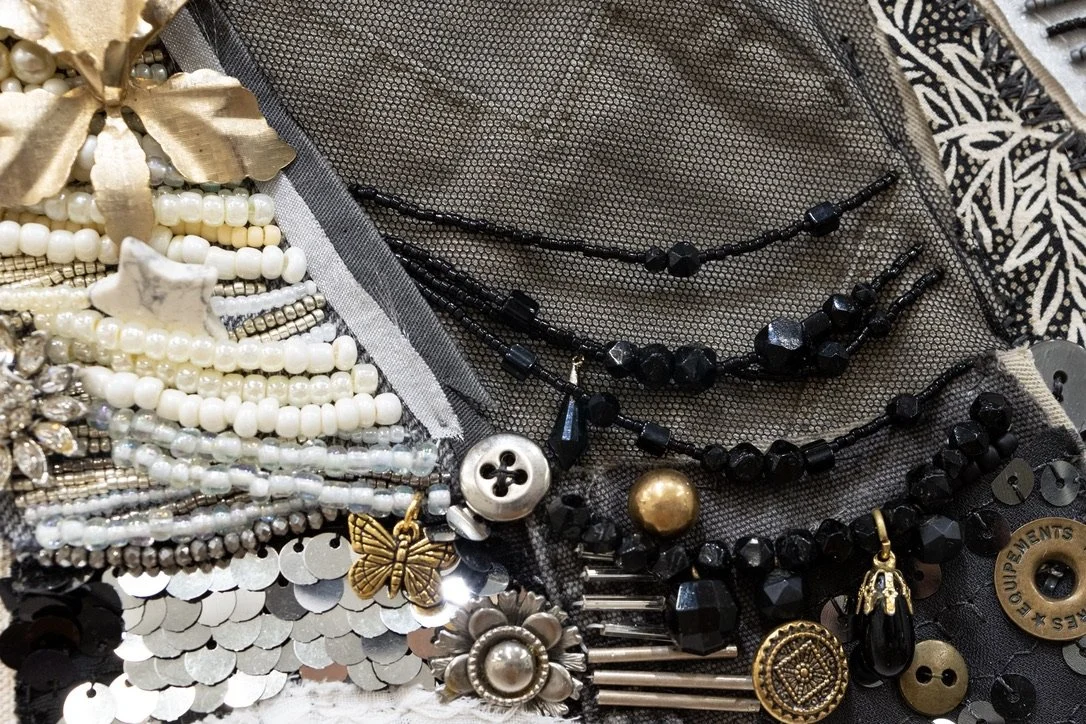
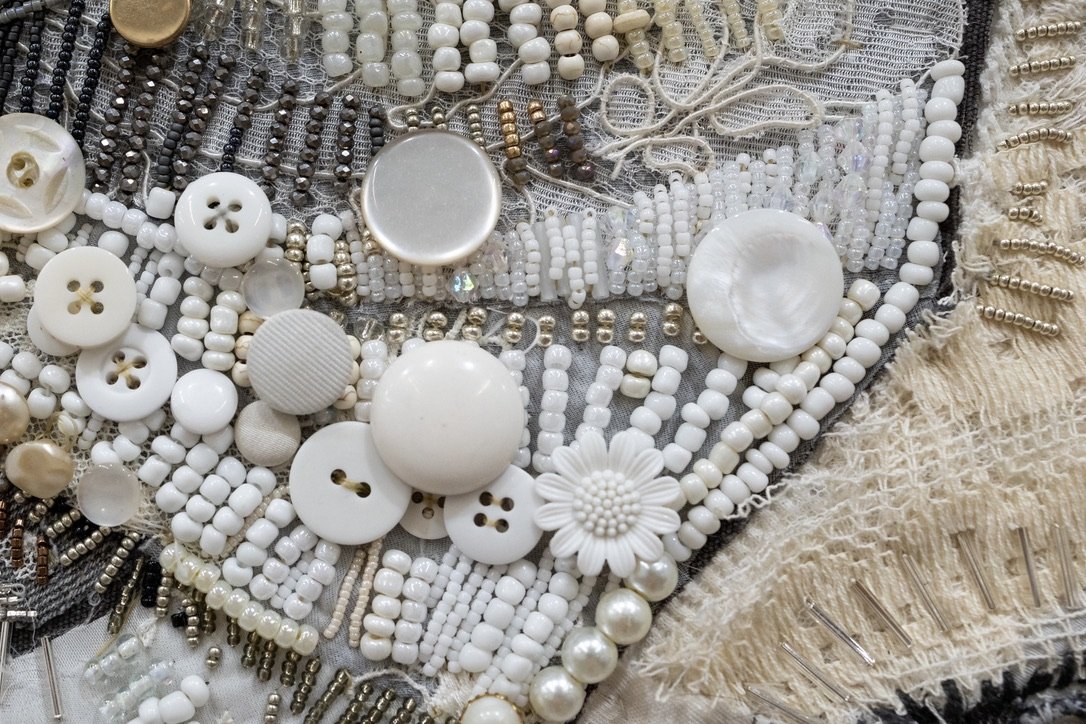
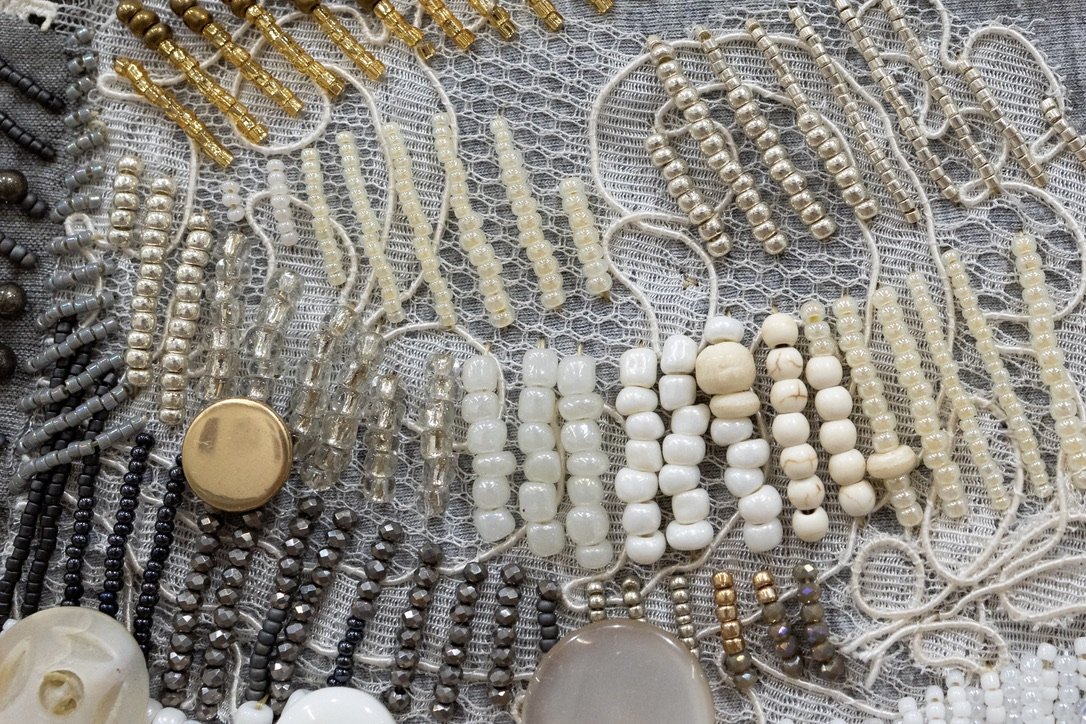
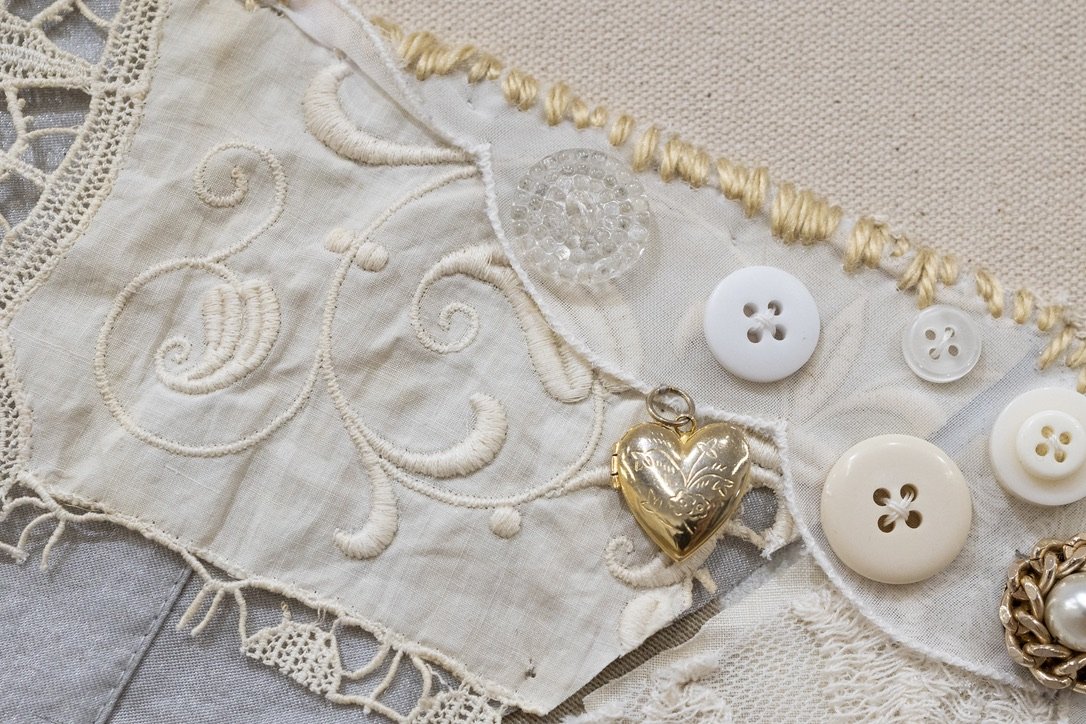
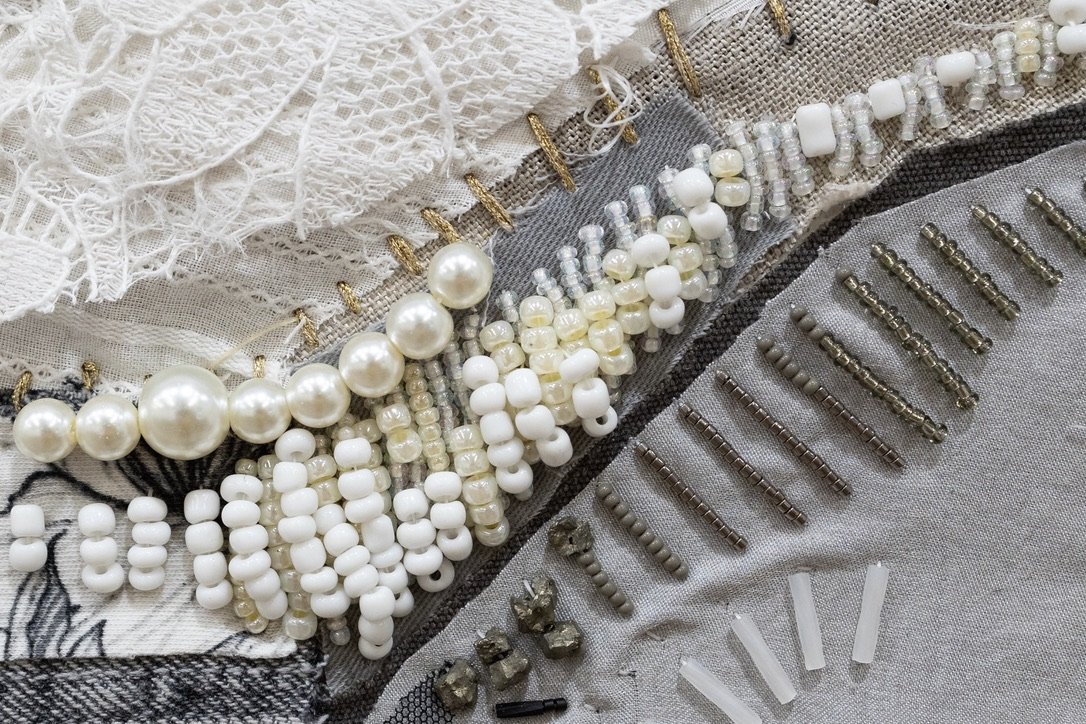
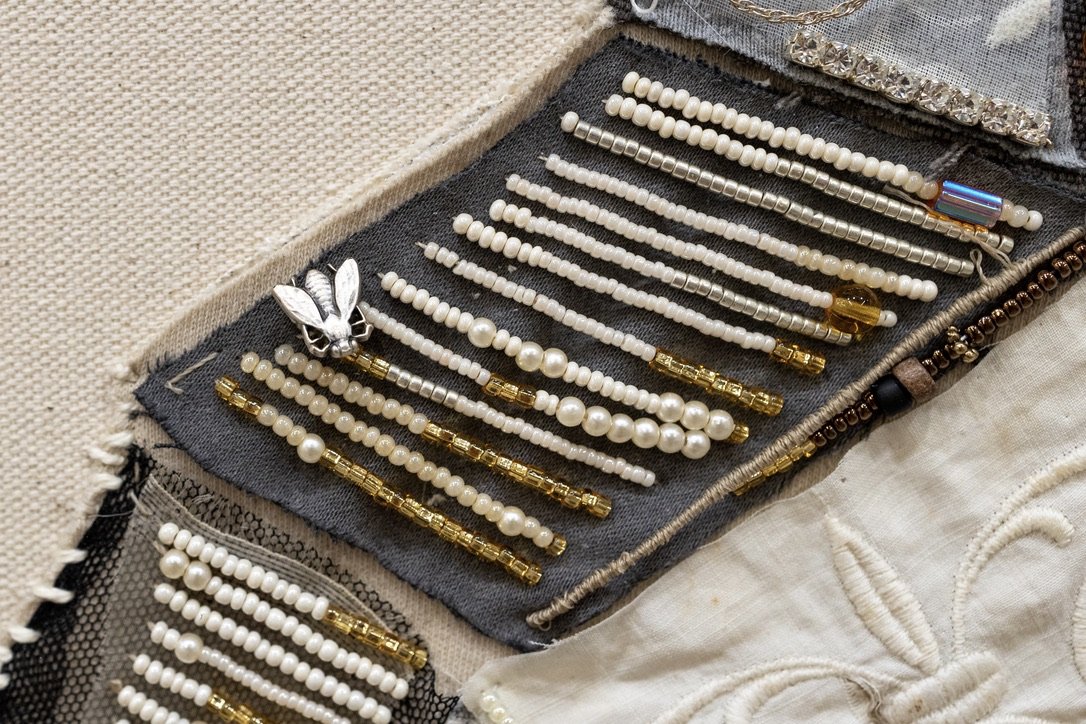
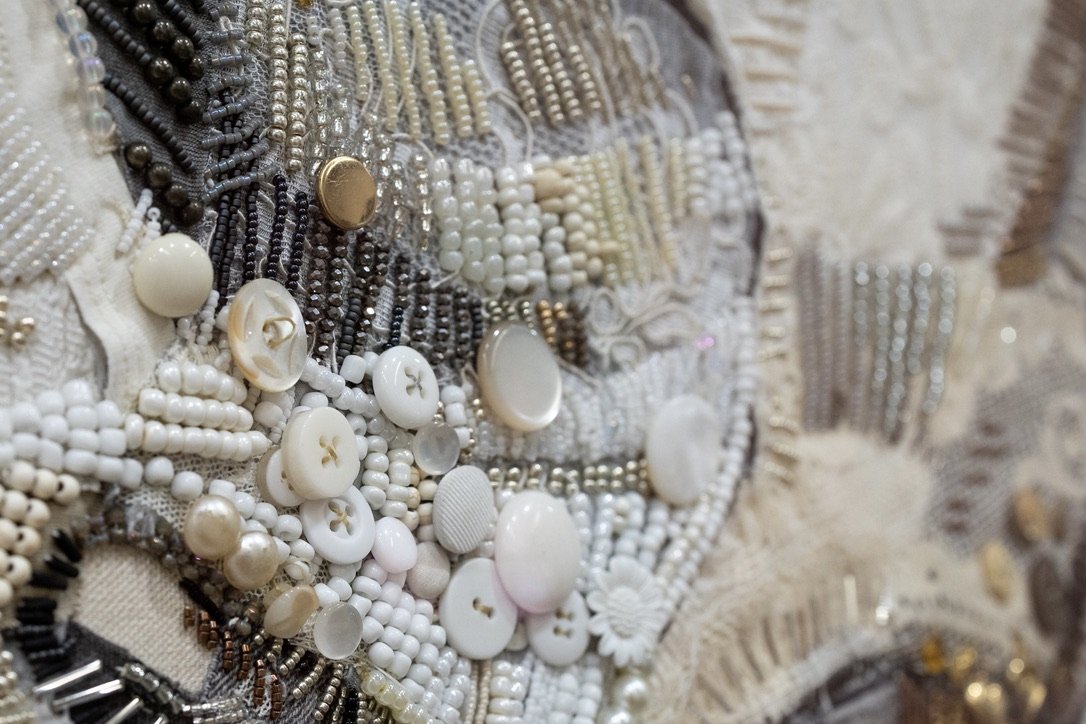
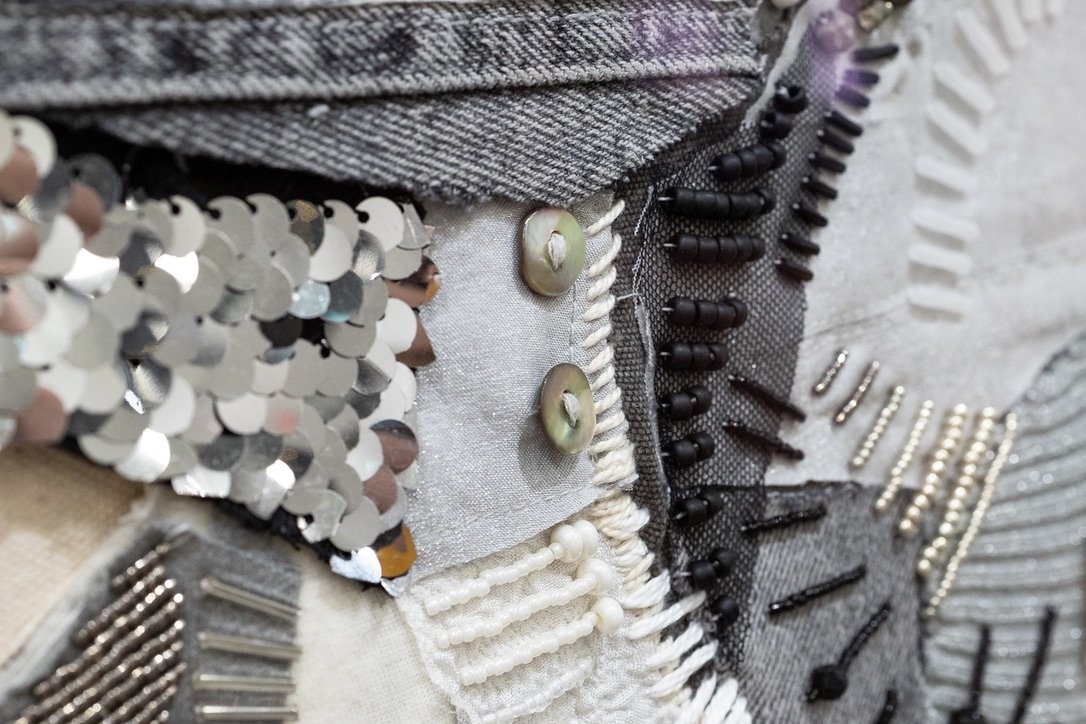
“The intricacy and beauty of the beaded pelvis stopped me on my usual route through campus. [It] exemplified the intersection of art and medicine to me, an intersection that was fundamental in my decision to attend medical school.”

